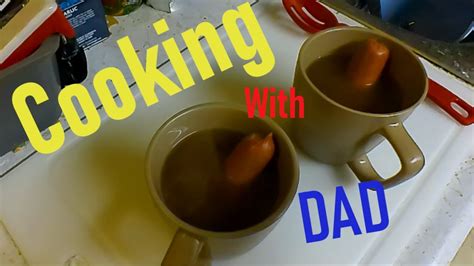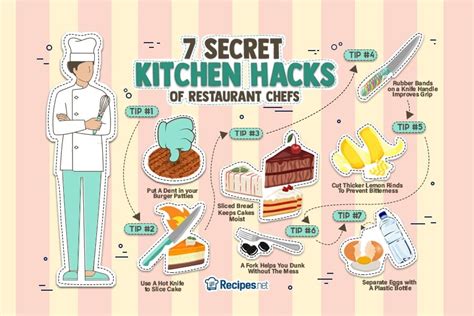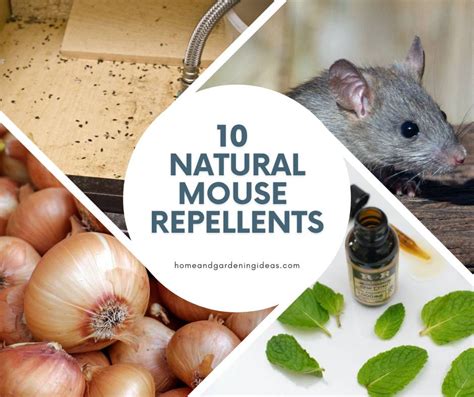
Home cooks are revolutionizing everyday meals with simple yet transformative techniques, revealing that minor adjustments can significantly enhance flavor and efficiency in the kitchen. These widely shared hacks, often focusing on ingredient preparation and cooking methods, are changing how both novice and experienced cooks approach their daily culinary routines.
Amateur chefs across social media platforms are enthusiastically sharing innovative kitchen hacks that promise to elevate home cooking from mundane to magnificent. These tricks, ranging from prepping ingredients to maximizing flavor, are generating buzz for their simplicity and effectiveness.
According to a recent surge in online discussions, many home cooks are discovering that seemingly insignificant changes in their cooking routines can lead to dramatic improvements in taste and efficiency. “I’ve seen a lot of people who are not professional chefs come up with some really creative ideas,” said one food blogger, highlighting the democratization of culinary knowledge.
Ingredient preparation hacks are particularly popular. One common tip involves soaking onions in cold water before chopping them to reduce tearing. Another suggests freezing herbs in olive oil to preserve their freshness and make them readily available for cooking. “Freezing herbs in olive oil is a game-changer,” said one enthusiastic home cook, “it saves time and ensures I always have fresh herbs on hand.”
Cooking method hacks also abound. Many cooks swear by browning butter to add a nutty, complex flavor to baked goods and sauces. Others recommend using a slow cooker to tenderize tough cuts of meat, transforming inexpensive ingredients into gourmet meals. “The slow cooker is my secret weapon for making restaurant-quality dishes at home,” noted a busy parent.
These shared tips aren’t just about saving time; they’re also about empowering home cooks to experiment and improve their skills. By sharing these simple techniques, cooks are creating a collaborative culinary community where everyone can learn and grow.
The rise of social media platforms has played a crucial role in the dissemination of these cooking hacks. Platforms like TikTok, Instagram, and Facebook have become hubs for sharing short, visually appealing videos demonstrating these techniques. This accessibility allows amateur cooks to learn from each other and adapt these hacks to their own kitchens.
“Social media has democratized cooking knowledge,” said a culinary expert. “Now, anyone can share their tips and tricks with a global audience, creating a dynamic and collaborative culinary environment.” The expert noted that this trend has not only improved the quality of home cooking but has also fostered a sense of community among cooks.
The sharing of these simple cooking hacks is more than just a trend; it represents a fundamental shift in how people approach cooking. By focusing on small changes and continuous improvement, home cooks are transforming their kitchens into laboratories of culinary innovation. This movement underscores the idea that anyone can become a better cook with the right knowledge and a willingness to experiment.
Expanded Details and Context
The current wave of shared cooking hacks represents a broader trend of culinary self-improvement and community learning. The internet has become a vast repository of cooking knowledge, allowing individuals to access information and techniques previously confined to professional kitchens or passed down through generations. This democratization of culinary expertise has empowered home cooks to elevate their skills and experiment with new flavors and methods.
Ingredient Preparation Hacks: The Foundation of Flavor
Ingredient preparation is a crucial aspect of cooking, and many hacks focus on maximizing the flavor and quality of raw ingredients. Soaking onions in cold water before chopping, for example, is a simple yet effective technique for reducing the release of irritants that cause tearing. This hack allows cooks to chop onions without discomfort, making the cooking process more enjoyable.
Freezing herbs in olive oil is another popular preparation hack. This method not only preserves the freshness of herbs but also infuses the oil with their flavor, creating a versatile ingredient that can be used in a variety of dishes. To implement this hack, simply chop fresh herbs, place them in ice cube trays, cover them with olive oil, and freeze. Once frozen, the herb-infused oil cubes can be easily added to soups, sauces, and other dishes.
Another notable ingredient preparation hack involves using vegetable peels to make broth. Instead of discarding vegetable scraps like carrot peels, onion skins, and celery ends, home cooks are now using them to create flavorful and nutritious vegetable broth. This hack not only reduces food waste but also provides a cost-effective way to enhance the flavor of soups and stews.
Cooking Method Hacks: Transforming Simple Ingredients into Gourmet Meals
Cooking method hacks focus on techniques that enhance the flavor and texture of dishes during the cooking process. Browning butter, for example, is a simple yet transformative technique that adds a nutty, complex flavor to baked goods and sauces. To brown butter, simply melt butter in a saucepan over medium heat, allowing it to simmer until the milk solids turn golden brown and the butter emits a nutty aroma. This browned butter can then be used in cookies, cakes, and sauces to add depth and richness.
Using a slow cooker to tenderize tough cuts of meat is another popular cooking method hack. Slow cookers are ideal for breaking down the collagen in tough cuts of meat, resulting in tender and flavorful dishes. This hack allows home cooks to transform inexpensive cuts of meat like chuck roast and brisket into gourmet meals with minimal effort. Simply season the meat, place it in the slow cooker with vegetables and broth, and cook on low for several hours until the meat is fork-tender.
Another notable cooking method hack involves using a cast-iron skillet to achieve restaurant-quality sears on meat. Cast-iron skillets retain heat exceptionally well, allowing them to create a crispy, caramelized crust on meat. To use this hack, heat the cast-iron skillet over high heat until it is smoking hot, then sear the meat for a few minutes per side until it is browned and crusty.
The Role of Social Media in Disseminating Cooking Hacks
Social media platforms have played a pivotal role in the dissemination of cooking hacks. Platforms like TikTok, Instagram, and Facebook have become hubs for sharing short, visually appealing videos demonstrating these techniques. The accessibility and shareability of these videos have allowed amateur cooks to learn from each other and adapt these hacks to their own kitchens.
TikTok, in particular, has become a breeding ground for viral cooking hacks. The platform’s short-form video format is ideal for demonstrating simple techniques and showcasing their results. Many home cooks have gained a large following by sharing innovative and effective cooking hacks on TikTok.
Instagram has also played a significant role in the spread of cooking hacks. The platform’s visual focus makes it ideal for showcasing the finished products of these techniques, inspiring others to try them out. Many food bloggers and home cooks use Instagram to share photos and videos of their culinary creations, often including detailed instructions on how to replicate their dishes.
Facebook groups dedicated to cooking have also become popular forums for sharing cooking hacks. These groups provide a space for home cooks to ask questions, share tips, and support each other in their culinary endeavors. The sense of community fostered by these groups encourages experimentation and continuous improvement.
Impact on Home Cooking and Culinary Skills
The sharing of simple cooking hacks has had a profound impact on home cooking and culinary skills. By focusing on small changes and continuous improvement, home cooks are transforming their kitchens into laboratories of culinary innovation. This movement underscores the idea that anyone can become a better cook with the right knowledge and a willingness to experiment.
One of the key benefits of these shared cooking hacks is that they empower home cooks to experiment with new flavors and methods. By providing simple and effective techniques, these hacks encourage cooks to step outside their comfort zones and try new things. This experimentation can lead to the discovery of new favorite dishes and the development of more advanced culinary skills.
Another benefit of these shared cooking hacks is that they make cooking more efficient and enjoyable. By streamlining the cooking process and providing time-saving techniques, these hacks can reduce stress and make cooking more manageable for busy individuals. This can lead to a greater appreciation for home cooking and a willingness to cook more often.
The Future of Cooking Hacks
The trend of sharing simple cooking hacks is likely to continue to grow in popularity in the future. As social media platforms continue to evolve and new technologies emerge, there will be even more opportunities for home cooks to share their tips and tricks with a global audience.
One potential area of growth is the use of artificial intelligence (AI) to personalize cooking hacks. AI algorithms could analyze individual cooking habits and preferences to recommend specific hacks that are tailored to their needs. This could lead to a more efficient and effective way for home cooks to improve their skills and experiment with new flavors.
Another potential area of growth is the development of interactive cooking platforms that allow home cooks to collaborate on recipes and share cooking hacks in real-time. These platforms could provide a virtual space for cooks to learn from each other and develop new culinary skills together.
The continued sharing of simple cooking hacks has the potential to transform home cooking and make it more accessible and enjoyable for everyone. By embracing these techniques and sharing them with others, home cooks can create a vibrant and collaborative culinary community that fosters continuous improvement and innovation.
Expert Opinions and Additional Insights
Culinary experts weigh in on the impact and significance of these cooking hacks, offering additional insights into the trend and its implications for the future of home cooking.
“The democratization of culinary knowledge through social media is a game-changer,” says Chef Emily Thompson, a renowned culinary instructor. “It allows home cooks to access techniques and tips that were once exclusive to professional kitchens, empowering them to experiment and elevate their cooking skills.”
Chef Thompson also emphasizes the importance of verifying the accuracy of cooking hacks before implementing them. “While many hacks are genuinely helpful, it’s crucial to ensure that they are based on sound culinary principles and have been tested by reliable sources,” she cautions. “Not all hacks are created equal, and some may even be detrimental to the final product.”
Dr. Sarah Miller, a food scientist, highlights the scientific basis behind many popular cooking hacks. “Many of these techniques are rooted in basic scientific principles, such as the Maillard reaction, which is responsible for the browning and flavor development in cooked foods,” she explains. “Understanding the science behind these hacks can help home cooks to use them more effectively and adapt them to their own recipes.”
Dr. Miller also notes the importance of food safety when implementing cooking hacks. “It’s crucial to follow proper food safety guidelines to prevent foodborne illnesses,” she advises. “This includes washing hands thoroughly, using separate cutting boards for raw and cooked foods, and cooking foods to the proper internal temperature.”
The rise of shared cooking hacks also reflects a broader trend of increased interest in home cooking and culinary self-improvement. “People are becoming more interested in where their food comes from and how it is prepared,” says Michael Davis, a food industry analyst. “This trend is driven by a desire for healthier, more sustainable, and more flavorful meals.”
Davis also notes that the sharing of cooking hacks has contributed to a more collaborative and community-oriented approach to cooking. “People are sharing their knowledge and experiences with each other, creating a supportive environment where everyone can learn and grow,” he says. “This is a positive development that is transforming the way people approach cooking.”
The future of cooking hacks is likely to be shaped by technological advancements and evolving consumer preferences. “We can expect to see more personalized and AI-driven cooking hacks in the future,” says Chef Thompson. “These hacks will be tailored to individual needs and preferences, making it even easier for people to improve their cooking skills.”
Dr. Miller also anticipates the development of new and innovative cooking techniques. “Scientists are constantly researching new ways to improve the flavor, texture, and nutritional value of food,” she says. “These discoveries will likely lead to the development of new and exciting cooking hacks in the years to come.”
The sharing of simple cooking hacks represents a significant shift in the culinary landscape. By empowering home cooks to experiment, learn, and share their knowledge, this trend is transforming the way people approach cooking and creating a more vibrant and collaborative culinary community.
FAQ: Frequently Asked Questions
-
What are some common ingredient preparation cooking hacks?
Common hacks include soaking onions in cold water to reduce tearing, freezing herbs in olive oil to preserve freshness, and using vegetable peels to make broth. These methods enhance flavor and reduce food waste. For instance, soaking onions in cold water for about 30 minutes before chopping can significantly minimize the release of propanethial S-oxide, the chemical responsible for causing tears. Freezing herbs in olive oil not only preserves the herbs but also infuses the oil with their flavor, creating a versatile cooking ingredient. Vegetable peels, often discarded, can be simmered in water with other vegetable scraps to create a flavorful and nutritious broth base for soups and stews.
-
How can cooking method hacks improve my meals?
Cooking method hacks like browning butter to add a nutty flavor or using a slow cooker to tenderize tough meats can transform simple ingredients into gourmet dishes. Browning butter involves heating butter until the milk solids caramelize, creating a rich, nutty flavor that enhances baked goods and sauces. Slow cookers break down tough cuts of meat over low heat for an extended period, resulting in tender and flavorful dishes without requiring constant attention. A cast-iron skillet sears meat more effectively than a regular pan, creating a crispy, caramelized crust that enhances the meat’s flavor and texture due to its superior heat retention.
-
What role does social media play in sharing these cooking hacks?
Social media platforms like TikTok, Instagram, and Facebook have become hubs for sharing short, visually appealing videos and tips. This accessibility allows amateur cooks to learn from each other and adapt these hacks to their own kitchens, creating a collaborative culinary community. TikTok’s short-form video format is perfect for demonstrating simple techniques quickly, while Instagram’s visual focus showcases the finished products, inspiring others to try the hacks. Facebook groups provide a space for cooks to ask questions, share their experiences, and support each other.
-
Are all cooking hacks shared online reliable and safe to use?
While many cooking hacks are genuinely helpful, it’s crucial to verify their accuracy and safety before implementing them. Not all hacks are based on sound culinary principles, and some may even be detrimental to the final product or pose food safety risks. Always ensure that the source is reliable and that the hack aligns with established culinary practices. Before trying a new hack, research it from multiple sources to confirm its effectiveness and safety. Always prioritize food safety guidelines, such as proper handling and cooking temperatures, when trying new techniques.
-
How can AI and technology shape the future of cooking hacks?
AI algorithms can personalize cooking hacks by analyzing individual cooking habits and preferences to recommend specific techniques tailored to their needs. Interactive cooking platforms can also allow home cooks to collaborate on recipes and share cooking hacks in real-time, fostering a more collaborative and innovative culinary environment. AI could also help automate meal planning by suggesting recipes based on available ingredients and dietary restrictions, incorporating relevant cooking hacks to optimize the cooking process.









